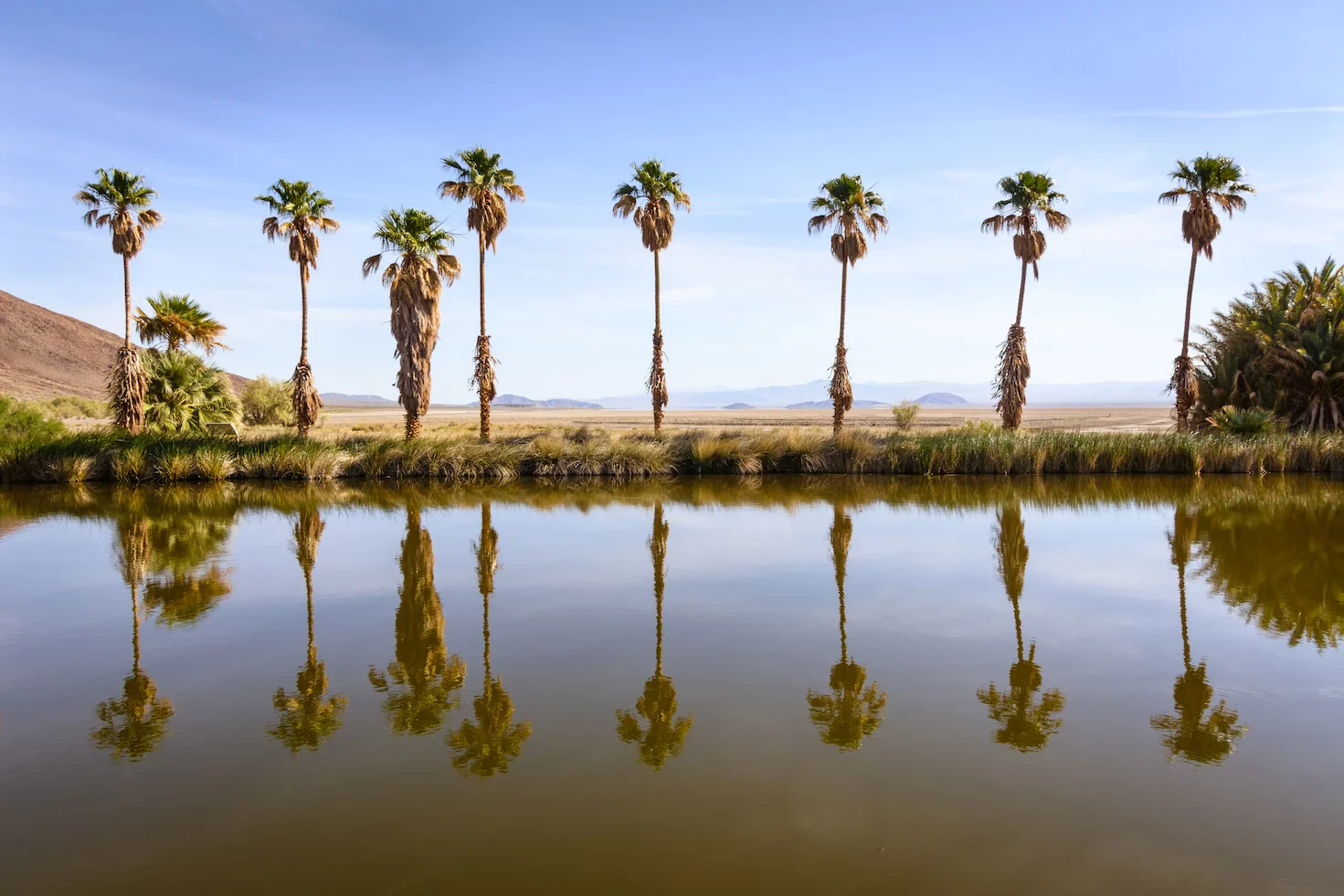What’s the plural of “oasis”?

An oasis (plural: oases) is “a fertile spot in a desert, where water is found.” (Merriam-Webster, oasis).
We found several lush oases during our desert trek.
The map indicated the location of two fertile oases.
The single oasis in the vast desert was a welcome oasis.
There are many beautiful oasi in this region.
- Oasis is singular.
- The plural of oasis is oases (pronounced o-a-seez).
Nouns that end in –sis
Many nouns ending in -sis are of Greek origin. Like oasis, analysis, crisis, thesis, synopsis, and nemesis, these words form their plural by replacing -is with -es.
| singular | plural |
|---|---|
| crisis | crises |
| diagnosis | diagnoses |
| oasis | oases |
| synopsis | synopses |
| thesis | theses |
To remember the plural of “oasis,” associate it with other words ending in “-sis” that form their plurals by changing to “-ses,” like “analysis” becomes “analyses.”
Usage: Oasis/oases
| Examples of “oasis” | Examples of “oases” |
|---|---|
|
In geography, an oasis is a fertile land in a desert or semi-desert environment. Typically, an oasis has a “central pool of open water surrounded by a ring of water-dependent shrubs and trees.” People who live in an oasis must manage land and water use carefully. He is the one refreshing oasis in the desert wilderness of the Classical school. —The History of Modern Painting Now I was filled with the desire to lie here in this “oasis” and live at ease and sniff the clean fragrance of mountain plants. —Mount Everest, The Reconnaissance Charles Kenneth Howard-Bury |
Oases also provide habitats for animals and plants. Oases are made when sources of freshwater, such as underground rivers or aquifers, irrigate the surface naturally or via man-made wells. Rain showers provide subterranean water to sustain natural oases, such as the Tuat. Oases often have human histories that are measured in millennia. There are two types of oases in the world. |
Synonyms & nearby words
| Synonyms | Nearby Words |
|---|---|
| sanctuary | undergraduate |
| haven | postgraduate |
| asylum | scholar |
| sanctum | student |
| retreat | classmate |
| hideaway | peer |
| resting place |
Origin of the word oasis
The word oasis came into English from Greek (from Egyptian):
|
Oasis, from Ancient Greek: ὄασις, óasis, which in turn is a direct borrowing from Demotic Egyptian. |
Specifically, the Demotic Egyptian word likely represented a plural form, with the singular possibly being something like wḥt. The Greek adopted the plural form, and subsequently, Latin and then English inherited the word in its pluralized state. This explains why “oasis” is often used as both a singular and plural noun, although the use of “oases” as the plural is considered grammatically correct.
Worksheet: Greek nouns
FAQs
Q: What is the plural of “oasis”?
Q: How do you pronounce the plural “oases”?
Q: How is the plural of “oasis” formed?
Q: Are there common mistakes for “oasis” plural?
Q: How can I remember the plural form?
Sources
- Wikipedia, oasis.










